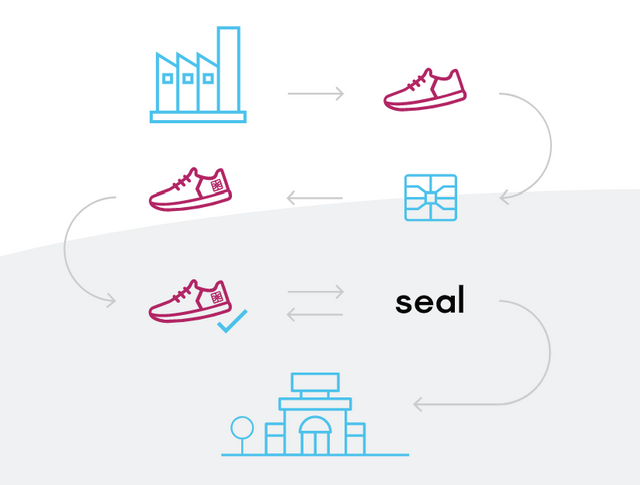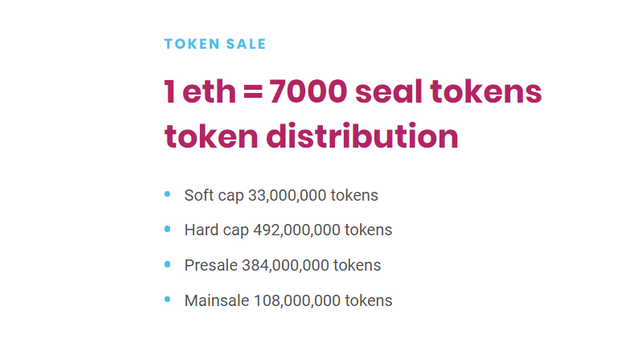Seal: Brand Authentication Platform based on Blockchain Technology

Beside our taste, the other reason that will be suggested our decisions to buy a product is the product’s brand itself. Brands that already known by many people inclined give an opinion to the buyer that the quality of the product is already good and this is the mindset that already spread to many people.
But, on the other hand, the advancement of a product’s brand will make us hard to distinguish the real one product with the fake one product. That quality is being mistaken by many people by making the same kind of products but with lower quality and cheaper price or can be known as counterfeiting. And this is the scope problem that will be solved by Seal.
Introducing Seal Platform
Like what has been said before nowadays many people is difficult to distinguish genuine products from the fakes one. And Seal platform is being created to overcome that problem, but more than that, Seal also implemented with other beneficial features that will help both consumers and the brands to get maximum security and benefit.
The seal is formed of a platform that builds up based on blockchain technology that makes it very easy to use by many people with a smartphone in order to recognize and distinguish a genuine one product with the fake one.
But more than that, Seal also create the Seal Network that will give other beneficial features to many people such as verify authenticity, registered ownership, transfer ownership, theft prevention, track parallel trade, product recalls, product analytics, and custom integration that will make Seal platform such an all in one package platform.
Seal App also is introducing to the public and become the core of Seal platform. Seal App is compatible with any Android based Smartphone or iOS (iPhone 7 or up). Seal App will be launched in Google Play Store and App Store later this year and can be downloaded there.
Seal Platform Ecosystem

When we used Seal platform, we will meet the three main components of the platform. Seal Chip, Seal App, and Seal Network. Seal chip will be verifying a product with NFC technology. And after that, it will be transferred to the Seal app to processing information whether it's a genuine product or a fake product. After entering the Seal App, the information is being worked on Seal Network combined with Seal Network’s features and later the result will be out.
Meet the Seal Token

Like other platforms in cryptocurrencies world, Seal platform also need the role of token that will be used to transacting within its platform. The token of Seal platform can be known as Seal Token. It's a utility token that will be used to pay the services by both consumers and brands when they make transactions within Seal Platform.
Besides that, the Seal token also can be used to interact with these decentralized brand apps (bApps) because Seal also will help the brands to set up their own decentralized app for their own product on the Seal Network. Seal Token enabling low costs micropayments between the Seal Network, consumers, and brands.
Right now, the Seal token is build up based on ERC20 Standard which means very easy to integrate with another Ethereum. But, in the future Seal token may building up based on ERC223 Standard.
The amount of Seal token hardcap is 1.200.000.000 and will never exceed. The amount of Seal token that will be allocated in the token sale rounds is no more than 492.000.000 tokens. To buy the Seal token we will need the KYC and AML. And if tokens in the presale round remain unsold they will e offered in the mainsale of the token.
Links:
Website
Whitepaper
ANN Thread
Facebook
Twitter
Telegram
Author:
Ashadiya_
ETH Address: 0xf6C481e9bf059DB0a38b876Ab893D11e31C338E3
Great post.I voted it up and hope to see soon more !!!!!
Greats!
I believe that blockchain technology is a fantastic tool in the battle against counterfeit goods, and the combination of NFC chips and an easy-to-use and widely distributed app that can verify the authenticity of a specific product is a natural fit. I also appreciate the value-add of being able to easily alert your customers of product recalls. Furthermore, being able to target marketing directly to the current owner of the product, as opposed to marketing to the original purchaser (who very well may have resold the product) is a fantastic idea.
What I do not understand is why KYC needs to be brought into the mix. This has drastic privacy implications - for example, I love the idea of having a way to easily verify the medication I have purchased is an authentic product...But if I am required to attach my name or other PII to that purchase (say for a medication that treats STD's) I would stay as far away from it as possible.